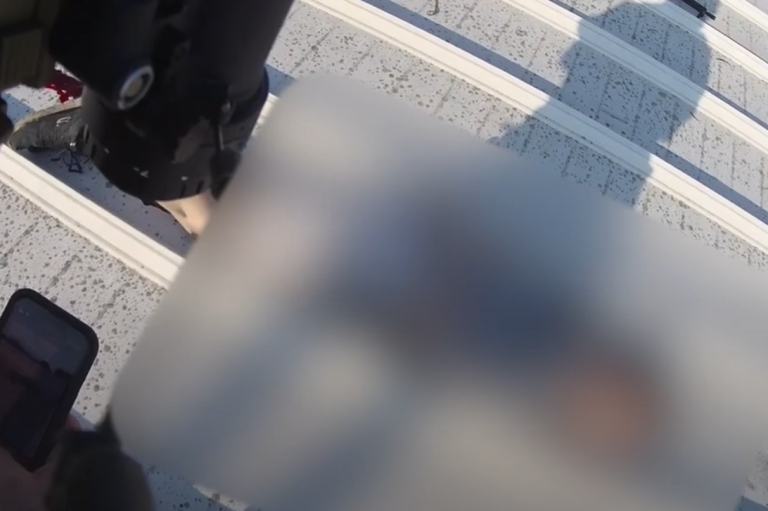New Florida Laws to Take Effect Oct. 1
Sept. 23 By: -- The Blake Moia Show --
Florida Govenor Ron Desantis signed into law, 31 brand new bills that will take effect starting October 1, 2024. The new laws range from the banning of the homeless from sleeping in public, to stiffer penalties and jail time for retail theft, and video voyeurism.
Homeless Persons Sleeping in Public
House Bill 1365, the most controversial law of the bunch is one that effectively bans homeless people from sleeping in public. The law also promises more resources for those who are homeless, but critics are skeptical.
Counties will be allowed to designate certain areas for camping when shelters become full, but only with approval from the Department of Children and Families, and for a period of one year.
Supporters of the bill say it will be easier to provide services to the homeless if they’re all in one place, but critics say the bill does nothing but gather up the homeless and move them out of public sight.
According to the text of the bill, ""Public camping or sleeping" means:
a. Lodging or residing overnight in a temporary outdoor habitation used as a dwelling or living space and evidenced by the erection of a tent or other temporary shelter, the presence of bedding or pillows, or the storage of personal belongings;
b. Lodging or residing overnight in an outdoor space 36 without a tent or other temporary shelter."
“This bill does not, and it will not address the more pressing and root cause of homelessness,” said Democratic state Sen. Shevrin Jones during a debate this year. “We are literally reshuffling the visibility of unhoused individuals with no exit strategy for people who are experiencing homelessness.”
DeSantis, however, said the new law is a unique approach in pledging to provide the services that homeless people often need.
“This is going to require that the services are there to help people get back on their feet,” the governor said. “I think it’s important that we maintain the quality of life for the citizens of Florida.”
The ban does not apply to people sleeping in vehicles that are legally parked.
The law was allowed to take effect after the U.S. Supreme Court ruled in June that governments can implement public sleeping bans.
Other Laws to Take Effect
House Bill 341 allows a vehicle registration applicant — or parent or guardian of a child — who has a disability or condition diagnosed by a licensed physician to voluntarily disclose that on their motor vehicle record.
The department of motor vehicle record must designate “SAFE” (Safeguarding American Families Everywhere) and may not include personal identifying information or information on the specific diagnosis.
The law provides law enforcement and first responders with an advanced notice that the person they’re going to interact with has a disability or condition in hopes of reducing “unnecessary adverse actions,” improving communication, and getting the person-specific care that’s needed.
“Interacting with law enforcement officers or first responders in an emergency, such as a motor vehicle crash or other crisis situation, can be more complex for persons with special needs, as language, physical, cognitive, learning, or mental disabilities may create barriers to receiving immediate and appropriate assistance,” the bill reads.
Some of the conditions include autism, ADHD, Down syndrome, Alzheimer’s, PTSD, a traumatic brain injury, diabetes, deafness, blindness, or another “mentally or physically limiting disorder,” according to the bill’s text.
House Bill 549 increases penalties for retail theft and porch pirates. The law makes it a third-degree felony to commit retail theft with more than five people. It also makes it a second-degree felony to commit retail theft with five or more people and use social media to encourage others to participate.
The law also allows for a person to be charged with a felony for retail theft if they commit multiple thefts in a 120-day period, which is an increase from the 30-day period.
“Florida is taking another step to distinguish ourselves from lawless jurisdictions and keep our residents and businesses safe,” DeSantis said in a statement upon signing the bill in April. “If you steal in Florida, we will catch you and we will prosecute you.”
Penalties for porch pirates also increase to felonies under HB 549.
Increased Penalties for Defrauding Certain Groups (HB 1171)
This law increases penalties to felonies for anyone who commits a “scheme to defraud” a person if the victim is over the age of 65, a minor, or has a mental or physical disability.
The law also includes the ability for a person to file a civil action if their name, image, or likeness is used in a scheme to defraud without their consent.
Flood Disclosures (HB 1049)
This law requires the seller of a property to complete and provide a flood disclosure to the purchaser at or before the contract is executed.
The disclosure will specify whether or not the seller has filed an insurance claim related to flood damage for that property or has ever received federal assistance for flood damage. It also includes an encouragement for the buyer to consider whether they need to purchase flood insurance.
According to the bill, a "Flood" is defined as:
(a) The overflow of inland or tidal waters.
(b) The unusual and rapid accumulation of runoff or surface waters from any established water source, such as a river, stream, or drainage ditch.
(c) Sustained periods of standing water resulting from rainfall.
Exposing First Responders to Fentanyl (SB 718)
Senate Bill 718 adds penalties for those whose behavior “recklessly” exposes first responders to fentanyl, leading to an overdose or other injury.
Anyone over 18 who causes a first responder to overdose or be injured due to fentanyl exposure will be committing a second-degree felony.
House Bill 1389 redesignates the offense of "video voyeurism dissemination" as "digital voyeurism dissemination".
Senate Bill 86: Issues Hope Cards for persons issued Orders of Protection / Injection Orders.
ENTIRE LIST OF NEW LAWS
- SB 92: Yacht and Ship Brokers’ Act
- HB 341: Designation of a Diagnosis on Motor Vehicle Registrations
- HB 403: Specialty License Plates
- HB 479: Alternative Mobility Funding Systems and Impact Fees
- SB 532: Securities
- HB 549: Theft
- SB 718: Exposures of First Responders to Fentanyl and Fentanyl Analogs
- SB 758: Tracking Devices and Applications
- SB 764: Retention of Sexual Offense Evidence
- HB 801: Alzheimer’s Disease and Related Dementia Training for Law Enforcement and Correctional Officers
- SB 808: Treatment by a Medical Specialist
- SB 902: Motor Vehicle Retail Financial Agreements
- HB 1007: Nicotine Dispensing Devices
- SB 1036: Reclassification of Criminal Penalties
- HB 1049: Flood Disclosure in the Sale of Real Property
- HB 1171: Schemes to Defraud
- HB 1235: Sexual Predators and Sexual Offenders
- HB 1365: Unauthorized Public Camping and Public Sleeping
- HB 1389: Digital Voyeurism
- HB 1415: Peer Support for First Responders
- HB 1545: Child Exploitation Offenses
- SB 1628: Local Government Actions
- HB 7001: OGSR/Reporter of Child Abuse, Abandonment, or Neglect
- HB 7003: OGSR/Preregistered Voters
- HB 7005: OGSR/Financial Disclosure
- SB 7006: OGSR/Utility Owned or Operated by a Unit of Local Government
- HB 7007: OGSR/Campus Emergency Response
- SB 7008: OGSR/Department of the Lottery
- HB 7009: OGSR/Mental Health Treatment and Services
- HB 7043: OGSR/Agency Personnel Information
FROM THE BLAKE MOIA SHOW ARCHIVES
©Copyright 2024. All rights reserved. The Blake Moia Show. Privacy Policy
We need your consent to load the translations
We use a third-party service to translate the website content that may collect data about your activity. Please review the details in the privacy policy and accept the service to view the translations.











































































